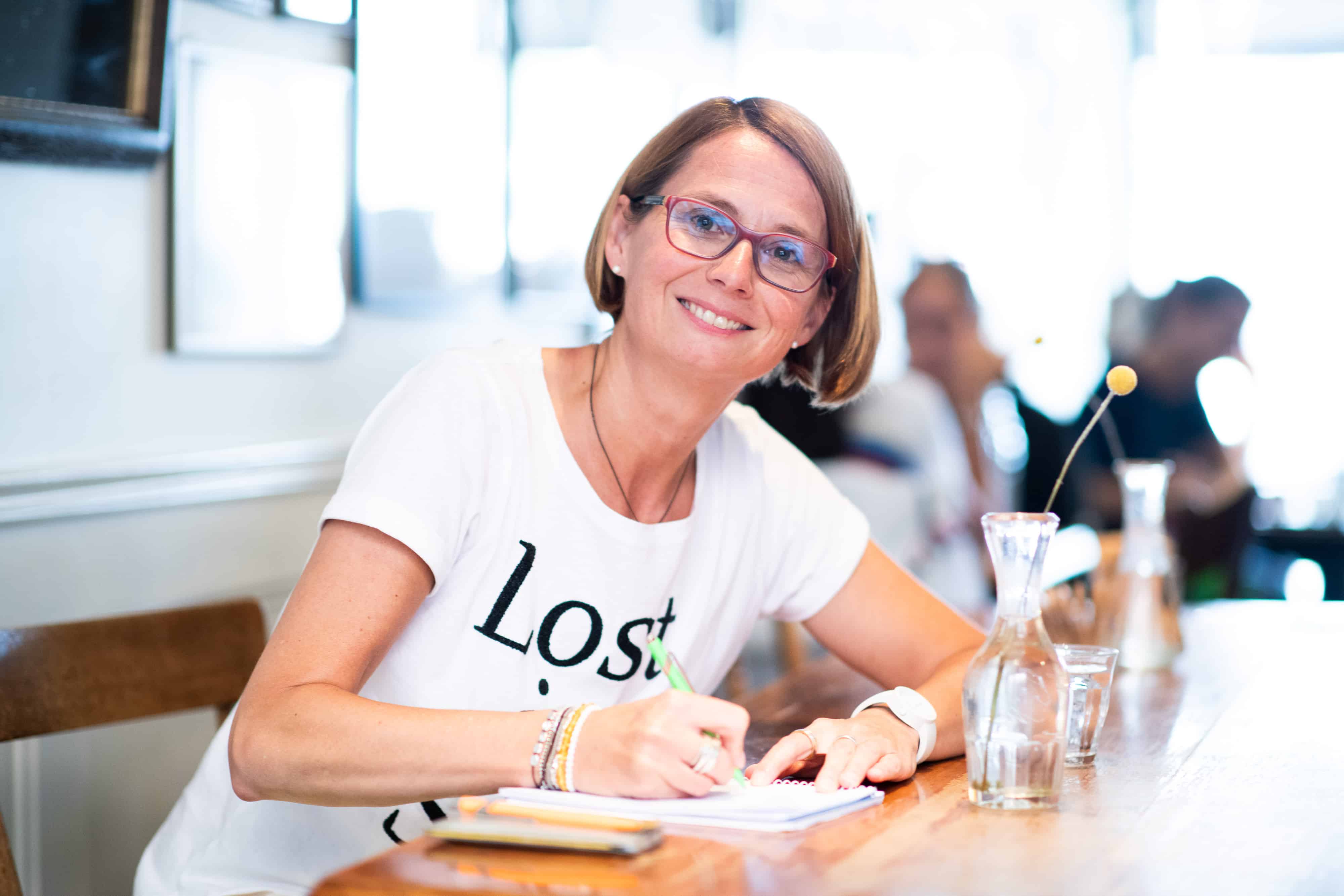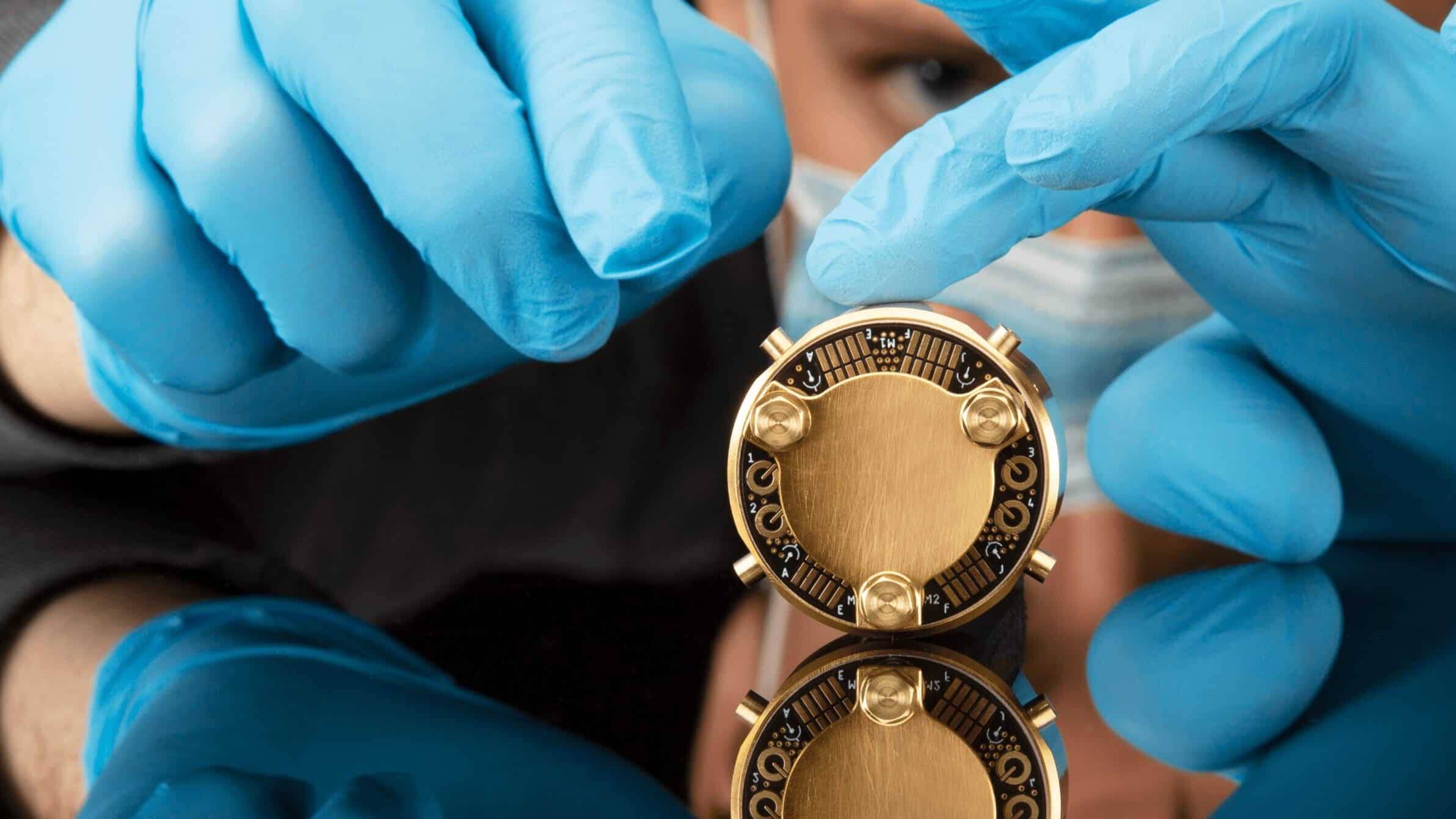Is there a place in space for Swiss startups? Yes, says José Achache, former director of Earth Observation at the European Space Agency (ESA). José wants Switzerland to be seen as a space nation. In this interview, he explains how. He works closely with Nanja Strecker, who runs the ESA Business Incubation Center in Switzerland. We asked her about the benefits of the incubator for startups.

AP-Swiss, Managing Director
José Achache is Managing Director of AP-Swiss, a joint programme of the European Space Agency (ESA) and the Swiss Space Office, which supports space startups. He was a professor of Geophysics and Earth sciences and top executive in French and international R&D organizations (BRGM, CNES, ESA, GEO). José is chairman of the board of Astrocast and Geosatis and involved in several other space-related companies in Switzerland and abroad. He wrote “Les Sentinelles de la Terre”, an essay on space policy.
José, where does your fascination with space come from?
As an adolescent, I was much more fascinated by the depths of the oceans than the heights of space. But the attraction to space came to me naturally when I was a professor of geophysics in Paris. Back in the 1980s, we started studying the Earth with satellites. By looking at the Earth from far above, you get the big picture, and fault lines between tectonic plates become visible. You also gain insights you cannot get otherwise into phenomena that are global in nature, like the magnetic and gravity fields. As I said, my interest in space started relatively late but, since then, it has been the “fil d’Ariane” of my professional and personal life.
But still quite early in the history of space exploration. How were things at that time?
First of all, most of what flew in space was either American or Soviet. The telecom business was developing, science in space was emerging and GPS did not exist. The information and the services from space were minimal compared to what is available today.
You joined the French space agency CNES later. What did you do there?
Yes, I went from using space as a researcher to designing and managing space programs. I became a research bureaucrat (laughs). My main contribution during this period was to initiate a fantastic program that would provide a comprehensive picture of the Earth’s environment. A sort of global utility for the Environment. It was launched during the French Presidency of the European Union in 2000, and it is now called Copernicus.
Eventually, you became Director of Earth Observation at the European Space Agency. ESA has 22 member states, including Switzerland, it has mandatory and optional space programs. How is it to work inside this large organization?
I would describe ESA as goddess Kali with 8 arms, the 8 directors of the agency. They have very large powers to bring initiatives and new programs forward. But for these programs to succeed, they have to be attractive for all member states, their industries, and their scientific communities, because the agency functions à la carte.The programs of the agency have to reconcile the sometimes contradictory goals of all member states. But even with these challenges, ESA can field fantastic missions that advance science and industry. This was exactly the case with Copernicus, which I further developed as an ESA program. The large number of satellites of the program, the Sentinels, allowed us to accommodate the requirements of all the member states. Yet, I remember that the most difficult battle was to make them accept its “free and open” data policy, now recognized as the key to its present success.
Now you’re closely working with the business incubator of ESA in Switzerland. How come?
I came to Geneva to lead the international organization GEO, also active in Earth Observation satellites. Then, I decided to stay in Switzerland and contribute to developing the space sector in Switzerland. It was 2012, and ESA was promoting applications of space and the concept of business incubators. The goal was to benefit from space for economic growth in Europe. There was all this gigantic infrastructure in space, and the question was how to make good use of it. Given my experience in space, an old colleague from ESA told me I could be helpful. This was the beginning of my third life in space: after scientific missions and public infrastructures, I was going to develop business in space.
Can you give me an example?
Astrocast is a good example. The founders are the guys that built the SwissCube, the first Swiss satellite, a very small and cheap satellite, but still in operation after 10 years in space. They asked me for guidance to develop Earth observation as a business model. My advice was to go commercial but not with imagery, which had little business value, but rather with data transmission, which is a viable business case. Eventually, Astrocast benefited from the ESA Business Applications program that promotes the development of space-based applications.
You said you want to develop the space sector in Switzerland. Is there much activity in this sector?
Yes indeed! A cluster of interesting companies is slowly but surely building up. There is more to the Swiss space industry than Ruag Space, which manufactures the payload fairings for Ariane rockets as well as structural elements for spacecraft. Take Apco Technologies for example, which is another important manufacturer of equipment for the space industry, U-blox, which sends wireless modules to space, Syderal which produces hardware and software electronics for satellites, Spectratime which produces the clocks for Galileo satellites, or startups like Swissto12 that manufactures 3D-printed antennas or Geosatis which is providing a space-based service to monitor offenders. And many more are coming, thanks to the technology and applications programs of ESA, as well as through the ESA BIC CH. The Swiss Space Center located at EPFL and ETH Zürich, is an important networking platform as well. In my view, Switzerland is on its way to becoming a space nation.
Other countries are actively positioning themselves as space nations as well. Luxembourg, for example, wants to take a lead in space mining and has already created a legal framework for that, as the first European country. How do you judge these efforts?
This is primarily successful marketing. In 1985, the company SES, Société Européenne des Satellites, was created in Luxemburg with an investment from the state. It has proved to be wildly successful and contributes a significant fraction of Luxemburg GDP through dividends. So Luxemburg is probably searching for a way to replicate that success and tries to attract companies to set up shop there. They have a state investment fund that pumps up to 10 million into a single startup, but all this achieves is absurd valuations. The problem is that if you want to manufacture satellites, you need engineers. In Switzerland, we have technical universities like EPFL and ETH Zürich, which provides a competitive advantage that other countries can’t overcome easily.
What about the concept of space mining itself, how realistic is it?
Why not? Just think about the mining industry here on Earth. It takes about a decade to complete a mining project, from exploration to production, so this is a sector that isn’t scared by a 10-year return on investment. And with such very long time frames in mind, mining asteroids isn’t a completely stupid idea anymore. Jeff Bezos, the founder of Amazon talks about space mining, and so does Elon Musk, who wants to harvest hydrogen and ammonia from asteroids.
What do you think will be interesting concepts in space in the future?
The combination of Earth observations generated by Copernicus and machine learning will yield the information we could have only dreamt about in the past. Many startups are now introducing artificial intelligence to analyze satellite imagery. Apart from that, I think we’re going to hear much more about cybersecurity in space in the coming years. All satellites are potential targets of cyberattacks, and they aren’t very secure. Cysec is another startup from the BIC that is active in this field.

ESA BIC CH, Managing Director
Nanja Strecker is Managing Director of the European Space Agency Business Incubation Center Switzerland (ESA BIC CH), a program managed by the European Space Agency (ESA) and ETH Zürich. She is also responsible for the development of Switzerland Innovation Park Zurich in Dübendorf, on behalf of ETH Zürich. Nanja holds a Master in Industrial Engineering from Karlsruhe Institute of Technology (KIT) and a PhD in Innovation Management from KFU Graz.
Nanja, the European Space Agency is running 20 incubators all over Europe. Why?
The first incubator opened in 2004 in the Netherlands, in the same town where ESA’s technology development center ESTEC is situated. The initial goal was to transfer technology used in space to applications on Earth and make it accessible to society. By now, the goal is considerably wider. A new era of space has been ushered in by private companies such as Elon Musk’s SpaceX. ESA wants to tap into innovation coming from the private sector, especially from startups.
What connection to space do the startups in the incubators have?
There are several possibilities. Some, such as the solar startup Insolight, bring technology developed for space to Earth. Others use data provided by satellites. And others develop technologies for use on the ground that could be relevant to space projects, 9T Labs with their 3D printing of carbon fiber is such an example. They are already doing tests together with ESA.
What does the Swiss ESA business incubator do for the startups?
The most important thing that we do is open doors to ESA and a large network of relevant space partners. Among them are SES, an operator of over 70 satellites, Airbus and RUAG Space but also smaller specialists such as Art of Technology, an engineering company, or Swisscom that is interested in companies linked to high-tech in general. We have detailed service descriptions with all of our partners that make clear what kind of help a startup can expect.
What else do startups get out of ESA BIC?
We also provide help in legal and financial matters. And the Swiss BIC is the most generous of all ESA incubators with non-dilutive funding of CHF 200’000 for every startup joining us. This is thanks to the Swiss Space Office and means that a part of the money Switzerland contributes to ESA flows back to innovative startups here.
What is the capacity of the incubator?
The first cohort of startups joined in 2017 and startups typically stay 2 years in our program. And since ESA BIC CH is a virtual incubator, they don’t need to move from where they are. We can admit up to 10 startups per year. All of these startups with a space connection are deep tech startups that need quite some time to develop.
Can you share any success stories of your startups?
The Hiperion project to bring Insolight’s solar cells to the market has been awarded 10.6 million Euros from the EU. The cells have broken the world record for efficiency. And other world records have fallen. Polariton Technologies have developed the world’s fastest electro-optic modulators and Neural Concept’s AI software helped design a record-breaking bicycle. And there is another achievement I want to point out. Clearspace has won a tender from ESA to de-orbit one of the agencies derelict satellites. This was the only consortium that applied that was led by a startup, which speaks both for Clearspace as well as the changing attitude of ESA. All in all, we’ve awarded already 3.4 million Euro of non-dilutive funding. The startups, which come from all parts of Switzerland, have raised 25 million in total from investors and created 200 high-tech jobs.
What do you like most about your job running the incubator?
My work is very varied and I get to work with founders of cutting-edge technology startups, which is fascinating for me as an innovation expert. It is a lot of work, but I’m already looking forward to the next selection of startups that will join us. The fact that in Switzerland we get more applications than in other countries is a very positive sign both for me and for the space startup ecosystem in Switzerland.
Written by
WITH US, YOU CANCO-INVEST IN DEEP TECH STARTUPS

Verve's investor network
With annual investments of EUR 60-70 mio, we belong to the top 10% most active startup investors in Europe. We therefore get you into competitive financing rounds alongside other world-class venture capital funds.
We empower you to build your individual portfolio.
More News
02.03.2021
An introduction to quantum sensors and the investment opportunities
in this space
Quantum computing and its supremacy over the classical computer capture the imagination of people all over the world. Less known, but no less fascinating is the practical application of quantum phenomena to build sensors that can measure what is otherwise impossible. Scanning a single cell, looking around a corner, hearing a mouse eat in a grain silo, all of this becomes possible thanks to quantum sensors.
08.02.2021
The next generation of venture capitalists
Investiere is proud to announce the launch of its first Venture Fellowship Program with the Cambridge University Venture Capital and Private Equity Society (CUVCPES). In this interview, the Society’s chairwoman, Shelby Newsad, and President, Michelle Parker, talk about their interest in venture capital and explain the program’s goal.
01.04.2020
How we are supporting our startups
Established at the end of 2019, the portfolio success team is playing a pivotal role in supporting our startups in these trying times. Here’s how.
Startups,Innovation andVenture Capital
Sign up to receive our regular newsletter and learn about investing in technologies that are changing the world.




